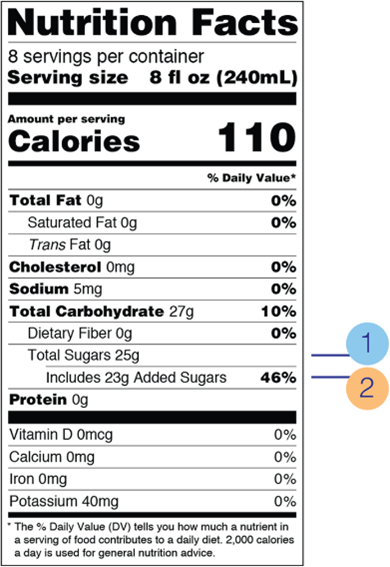Developing your child’s dental routine can be a daunting task – especially if you are a new parent. Taking care of your child’s teeth right from the start not only helps guide their permanent teeth into proper alignment, but also fosters lifelong dental hygiene habits. Starting a dental care routine early helps eliminate bacteria and plaque, helping prevent what every parent dreads: cavities.
 Cavities are the number one chronic infectious disease among children in the U.S. According to the Centers for Disease Control and Prevention, 46% of children ages 2-19 years have cavities in one or more primary tooth.
Cavities are the number one chronic infectious disease among children in the U.S. According to the Centers for Disease Control and Prevention, 46% of children ages 2-19 years have cavities in one or more primary tooth.
Dr. Yu-Yin Lin, Pediatric Dentistry Predoctoral Director and Assistant Professor at UAB School of Dentistry offers advice on developing a successful dental routine for your child that they can take into adulthood.
Birth-2 Years Old:
Cleaning: It is important to start your child’s dental routine as soon as possible. Dr. Lin recommends rubbing your child’s gums with gauze at bedtime to prepare them for their first teeth cleaning.
 Total sugars are sugars naturally present in many foods and beverages such as fruits and milk. Added sugar is sugar that is added during the processing of foods such as honey, concentrated fruit juices, and desserts.“Before brushing is introduced, parents can start using gauze or washcloths to wipe the gums. This can become a part of the bedtime routine, so children get used to the habit of ‘brushing’, so it isn’t a surprise when their first tooth comes in,” Lin said.
Total sugars are sugars naturally present in many foods and beverages such as fruits and milk. Added sugar is sugar that is added during the processing of foods such as honey, concentrated fruit juices, and desserts.“Before brushing is introduced, parents can start using gauze or washcloths to wipe the gums. This can become a part of the bedtime routine, so children get used to the habit of ‘brushing’, so it isn’t a surprise when their first tooth comes in,” Lin said.
Your baby should be seen by a dentist by their first birthday.
“When your baby’s first tooth does come in, you should begin brushing it immediately. You should brush with a soft bristle toothbrush with fluoride toothpaste using the size of a grain of rice.”
Diet: Cut down on how often your baby eats sugary foods and drinks.
“We discourage juice before age one and restrict added sugar for children under two. That means no sweet beverage before age two, and if you do give your child some make sure it is 100 percent fruit juice,” she said.
You also never want to dip your baby’s pacifier into sugar. Dr. Lin says that could damage your baby’s teeth and promote cavities.
“An important thing to know is that babies should not be sleeping with milk. If your baby needs a bottle to go to sleep, you should only be using water. The sugar in milk sitting on the teeth all night turns into acids, which can erode the enamel.”
2-5 Years Old:
Cleaning: At this stage, it is important that you brush your child’s teeth twice a day. The most important time to brush is at night, right before bedtime.
“If your child is not used to their dental routine yet and does not want to brush twice a day, be sure to brush at night to clean off what they have eaten throughout the day. In this case, bacteria aren’t growing and causing damage to their teeth while they sleep,” Lin said. “Once your child accepts this routine, then introduce a second brushing in the morning.”
Children above the age of three can use a pea-sized amount of toothpaste when brushing their teeth. This balances the benefits of fluoride exposure while preventing the potential risk of fluorosis (overexposure to fluoride).
Diet: Limit sugar and snacks – children should have no more than three snacks a day.
“Choose snacks that don’t remain in the teeth for a while. Avoid sticky or starchy foods and opt for calcium-rich foods such as cheese or yogurt. Also, incorporate crunchy fruits and vegetables like apples, carrots, and celery.”
Dr. Lin also recommends:
- Nuts
- Homemade smoothies with limited sugar
- Avocados
School-Age Children:
Cleaning: Parents should supervise the brushing of teeth until they are seven or eight years old.
“If your child is struggling to maintain a routine, consult with your dentist to create a personalized plan that suits their lifestyle,” Lin said.
If you have a child involved in sports, be sure to use a mouthguard to protect their teeth. Ask your child’s dentist which type of mouthguard is best for them.
Diet: Lin said to avoid carbonated beverages as they can erode tooth enamel and keep sports drinks and juice to a minimum.
“If you purchase sports drinks for your child, consider getting a smaller bottle or opting for zero sugar. Children will not often finish the whole bottle and instead drink it throughout the day. If the sports drink has sugar in it, they are exposing their teeth to sugar over and over. If you do choose to have bigger bottles, try drinks that contain zero sugar to avoid overexposure. Sports drinks are for sports practices, your child should be drinking water the rest of the day.”
Don’t forget to encourage your child to drink water, specifically tap. Fluoride helps prevent tooth decay by strengthening tooth enamel and making it more resistant to acid.
“In the state of Alabama, only 72.7% of community water is fluoridated. While there are still some communities here without fluoridated water, we generally recommend drinking tap water over bottled. Bottled water has very little fluoride so tap water is a great low-cost way to protect your teeth. If your community doesn’t have fluoridated water, try toothpaste with fluoride to receive the benefits and talk to your dentist on different ways to keep teeth healthy.”
UAB Pediatric Dentistry, works to provide every family with quality, comprehensive oral health care directed by board-certified or board-eligible specialists in pediatric dentistry. Our goal is to clearly communicate with our patients and families, focusing on the individualized prevention of childhood dental issues so you do not have to see us as often. For more information and to make an appointment, call (205) 934-4546.